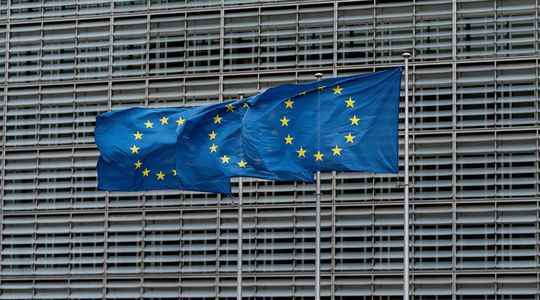NO / “It is imperative to succeed in the “prevention revolution”
Jean-Charles Samuelian-Werve, co-founder and managing director of Alan
The health crisis has demonstrated the importance of reliable, accessible, homogeneous health data: management of the acute phase of the epidemic (how many patients screened or hospitalized?), development and administration of vaccines, up to monitoring of potential effects secondary… The medical data was decisive. It is in this context that the European Commission publishes its draft legal framework for a European Health Data Area (EHDS). We must resolutely embark on this path, subject to strong guarantees in terms of security, consent and confidentiality.
The creation of the EHDS will constitute progress both for citizens, who will become masters of their data, and for patients: the space envisaged is the essential platform for enabling the sharing of essential data between care providers (to reduce prescriptions duplicate, simplify administration) and improve the quality of care through the availability of information. It is also a decisive opportunity for research: the framework implemented will allow the “real life” study of large cohorts of patients to monitor the effect of treatments, identify side effects… The future of systems of health will go through the “prevention revolution”, which we will not achieve without quality data on a large scale accessible according to clear rules: this is what will allow us, in Europe, to create services of a nature to limit the explosion of risk factors and chronic diseases (obesity, diabetes, cardiovascular diseases).
Progress for Europe, at last. At a time when new epidemics are feared, citizens want to have concrete tools to regain control of their health. By establishing a European space for health data, the EU has the ability to establish itself as a model of democratic management in public health, compared to competing spaces (United States, China, in the first place), with all the economic issues involved.
YES / “The transmission and use of this sensitive data will have to be regulated”
Bernard Benhamou, Secretary General of the Institute for Digital Sovereignty
The European health data space is a strategic project, which will allow researchers to access data from the various players concerned to improve artificial intelligence systems for diagnosis and treatment. It should also make it possible to accelerate the shift from health economics to prevention. But it will be necessary to ensure that these transformations do not call into question our social protection, in favor of a hyper-individualization of health coverage or a hyper-control of individuals. Above all, it will be necessary to supervise the transmission and use of this sensitive data.
Health data is already a prime target for technology groups. Companies like Apple, Google, Microsoft or even Facebook are investing heavily in their processing. The attack on Microsoft Exchange servers is a recent example of competition in this area. Cybersecurity experts initially thought it was industrial espionage. However, for the Chinese attackers – since it was about them – the objective was to recover the structured documents of millions of companies, in order to train their own artificial intelligence systems, for their give a head start on their American or European competitors. Beyond cyberattacks, the EHDS will have to protect this sensitive data from foreign intelligence agencies, which are able to obtain it through ultra-confidential requests authorized by the Fisa law. (Foreign Intelligence Surveillance Act). This question continues to arise for the French health data platform (or Health Data Hub) currently hosted by Microsoft Azure.
Data protection but also the ethical conditions under which they will be used will constitute the keystone of the EHDS.
Backend fetch failed
Meditation Guru:
XID: 985276124
Varnish cache server
